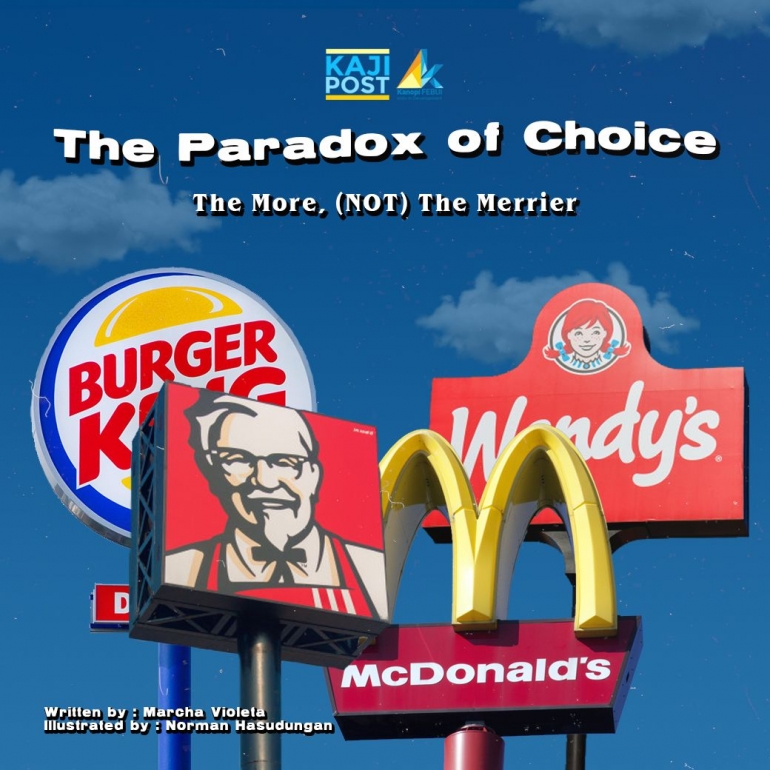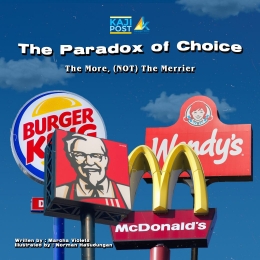After conducting a series of experiments, Shin and Ariely collected evidence that shows how people overvalue the options that they have and are willing to overinvest to keep them from vanishing. Essentially, people exhibit the fear of missing out and are afraid of making suboptimal decisions if they 'hastily' settle on one option.
In an ideal---and unexisting---world, there would be no consequence to overinvest in keeping doors open. However, we always face trade-offs in making our decisions. Take, for example, the amount of time that a customer loses when they're browsing for lunch menus on GoFood because there are too options displayed in the application. That lost time could be used instead to work on other things or for leisure.
Another example used by Shin and Ariely is people involved in dating multiple romantic partners who have to exert extra effort, monetary or otherwise, to keep those partners available and not feel neglected. Because of wasted resources, those trade-offs eventually hinder productivity and sacrifice efficiency because of wasted resources.
Overcoming the temptation
How, then, can we resist the temptation to ponder over our choices for an unnecessarily long period of time? Or to stop wasting resources on unworthy options? Psychologist Barry Schwartz offers some insights to avoid these consequences.
Schwartz, in his book The Paradox of Choice -- Why Less is More, categorizes people into two when they're making decisions: maximizers and satisfiers. People can fall into different categories when they're making different decisions.
Maximizers seek for and are only willing to accept the best choice. Satisfiers, on the other hand, tend to settle on things that they judge as good enough and don't go looking for other options out there. Schwartz recommends his readers to satisfice more and maximize less.
He also reminds us to embrace the constraints that we face when making decisions, this way we must choose when to choose and allocate other resources accordingly. In conclusion, trivial and daily decisions should be made with the satisfier attitude while more important decisions may be maximized while still considering the constraints that one face.
By Rosalia Marcha Violeta | Economics 2018 | Staff of Studies Division Kanopi FEB UI 2019
References
Wansink, B., & Sobal, J. (2007). Mindless Eating: The 200 Daily Food Decisions We Overlook. Environment and Behavior, 39(1), 106--123. https://doi.org/10.1177/0013916506295573
Mankiw, N. (2018). Principles of Economics (8th ed., pp. 499-500). Cengage Learning.
Thaler, R. H. (2018) "From Cashews to Nudges: The Evolution of Behavioral Economics." American Economic Review, 108 (6): 1265-87. DOI: 10.1257/aer.108.6.1265







